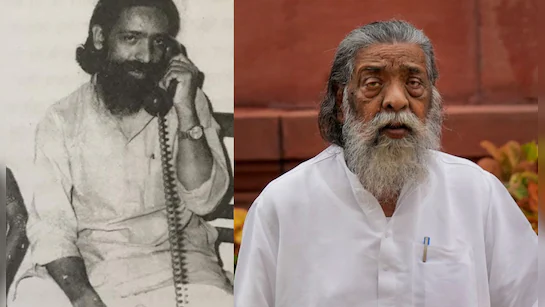Veteran tribal leader and founder of the Jharkhand Mukti Morcha (JMM), Shibu Soren, passed away at the age of 81 after a prolonged battle with kidney-related ailments. Known as ‘Dishom Guru’—the revered leader of the land—Soren’s demise marks the end of a transformative era in India’s regional and tribal politics.
Soren had been under medical supervision for over a month before his passing. Widely recognised as the architect of the Jharkhand movement, his death has left a deep void in Indian political history.
From Hostel Life to Political Awakening
Born on January 11, 1944, in Nemra village of Ramgarh (then Bihar, now Jharkhand), Shibu Soren was the son of Sobaran Manjhi, a respected local teacher. His grandfather, Charan Manjhi, served as a tax tehsildar during the British period under the Ramgarh king Kamakhya Narayan Singh. Financially, the family was considered relatively stable. As a young boy, Soren and his elder brother Rajaram were enrolled in a hostel on Gola Road to pursue their education.
But his life took a dramatic turn in 1957 when his father was murdered near Lukaiyatand village while delivering supplies to his sons. This tragedy, which occurred when Soren was just 15, profoundly impacted him and became the defining moment that led him toward activism and later into politics.
Emergence of a Tribal Leader
Following the loss of his father, Soren’s interest in academics faded. He came into contact with Forward Bloc leader Lal Kedar Nath Sinha and briefly worked as a porter during railway construction before turning his attention toward activism. He began rallying tribal communities against oppressive moneylenders. One of his most notable early initiatives was the “Dhankatni Movement,” where he and his followers would harvest paddy from landlords’ fields, guarded by tribal youth with bows and arrows.
This grassroots resistance earned him the title of Dishom Guru, meaning “Guru of the land” in Santhali. The movement laid the foundation for a much larger political awakening among Jharkhand’s tribal communities.
Formation of JMM and Political Ascent
In 1973, Soren co-founded the Jharkhand Mukti Morcha alongside Marxist trade unionist A.K. Roy and Kurmi-Mahto leader Binod Bihari Mahto during a public gathering at Dhanbad’s Golf Ground. The JMM rapidly emerged as the dominant force advocating for a separate tribal state, drawing support from across the Chotanagpur and Santhal Pargana regions.
By the 1980s, Soren had become a household name. In the 1980 Lok Sabha elections, he contested and won the Dumka seat under the JMM banner. Notably, his campaign was supported by the Dishom Dadi initiative, which asked every tribal household to donate 250 grams of rice and three rupees toward the movement.
Over the years, Soren won the Dumka Lok Sabha seat eight times—in 1980, 1989, 1991, 1996, 2002, 2004, 2009, and 2014—and was elected to the Rajya Sabha thrice. His presence in Parliament amplified the voice of tribal India on a national stage.
Role in Jharkhand’s Formation and Chief Ministerial Tenures
Soren’s decades-long agitation for a separate tribal state culminated in the formation of Jharkhand on November 15, 2000. After the state’s creation, he became its Chief Minister three times—albeit for short terms due to coalition instability.
-
First tenure: March 2 to March 11, 2005
-
Second tenure: August 27, 2008, to January 12, 2009
-
Third tenure: December 30, 2009, to May 31, 2010


